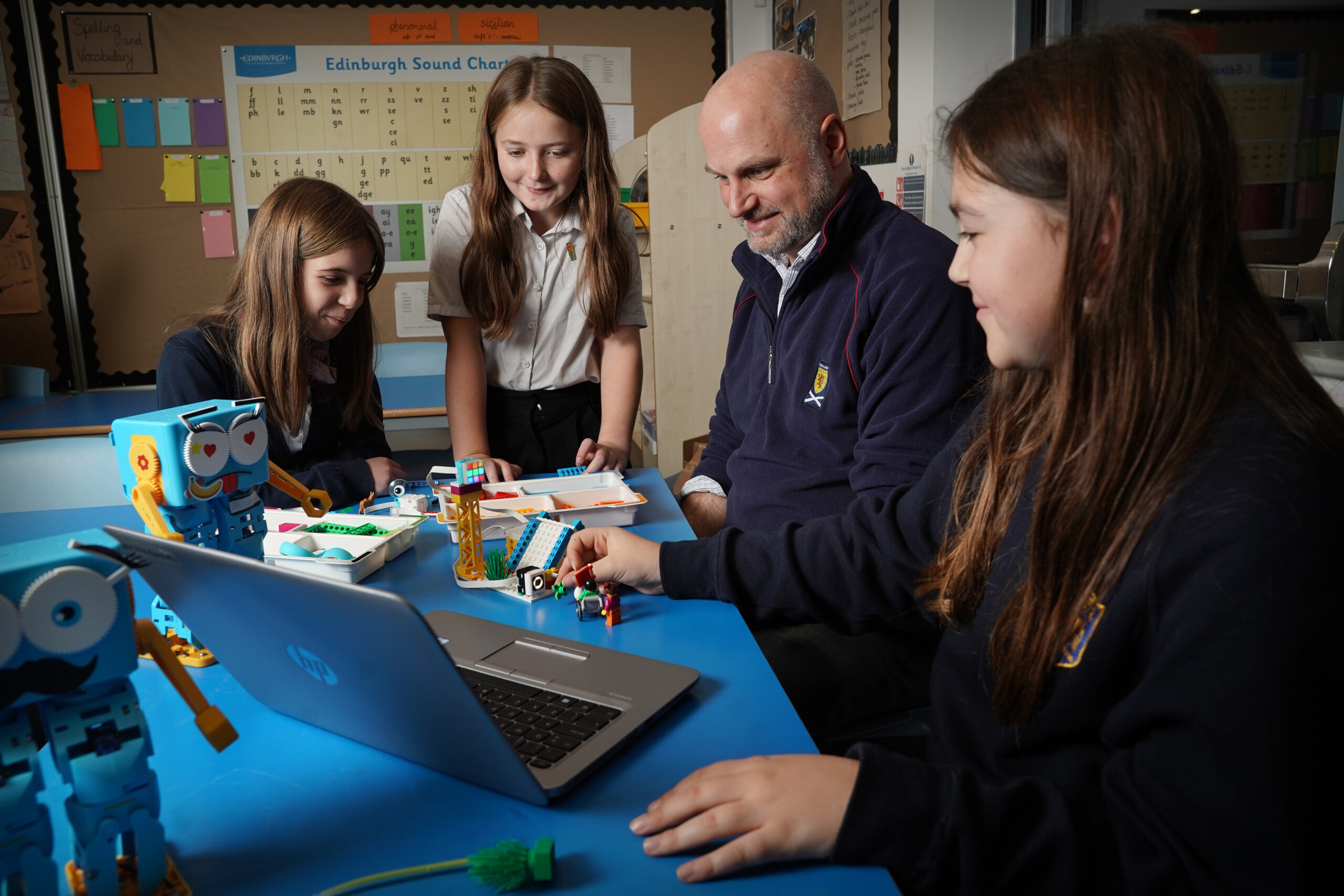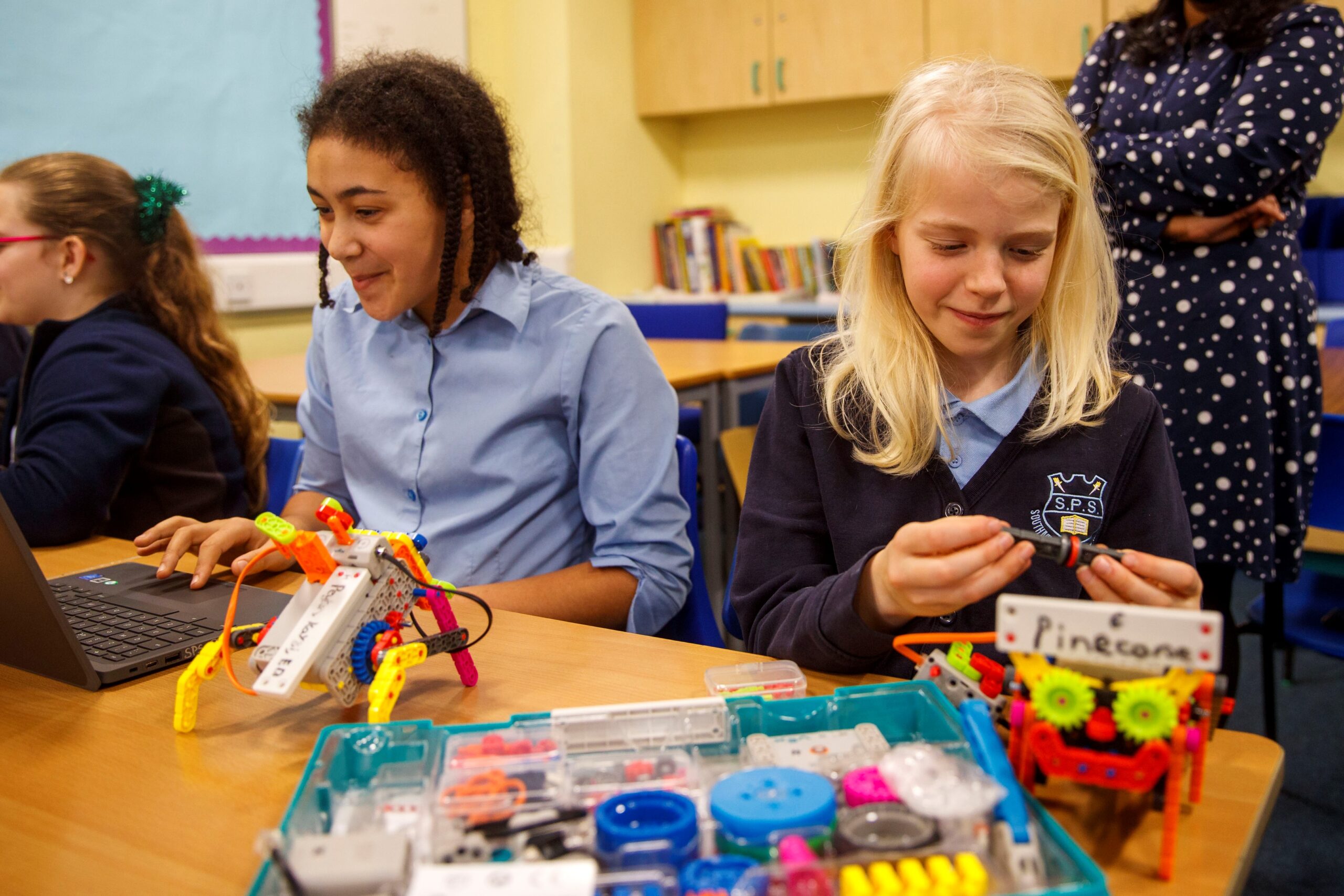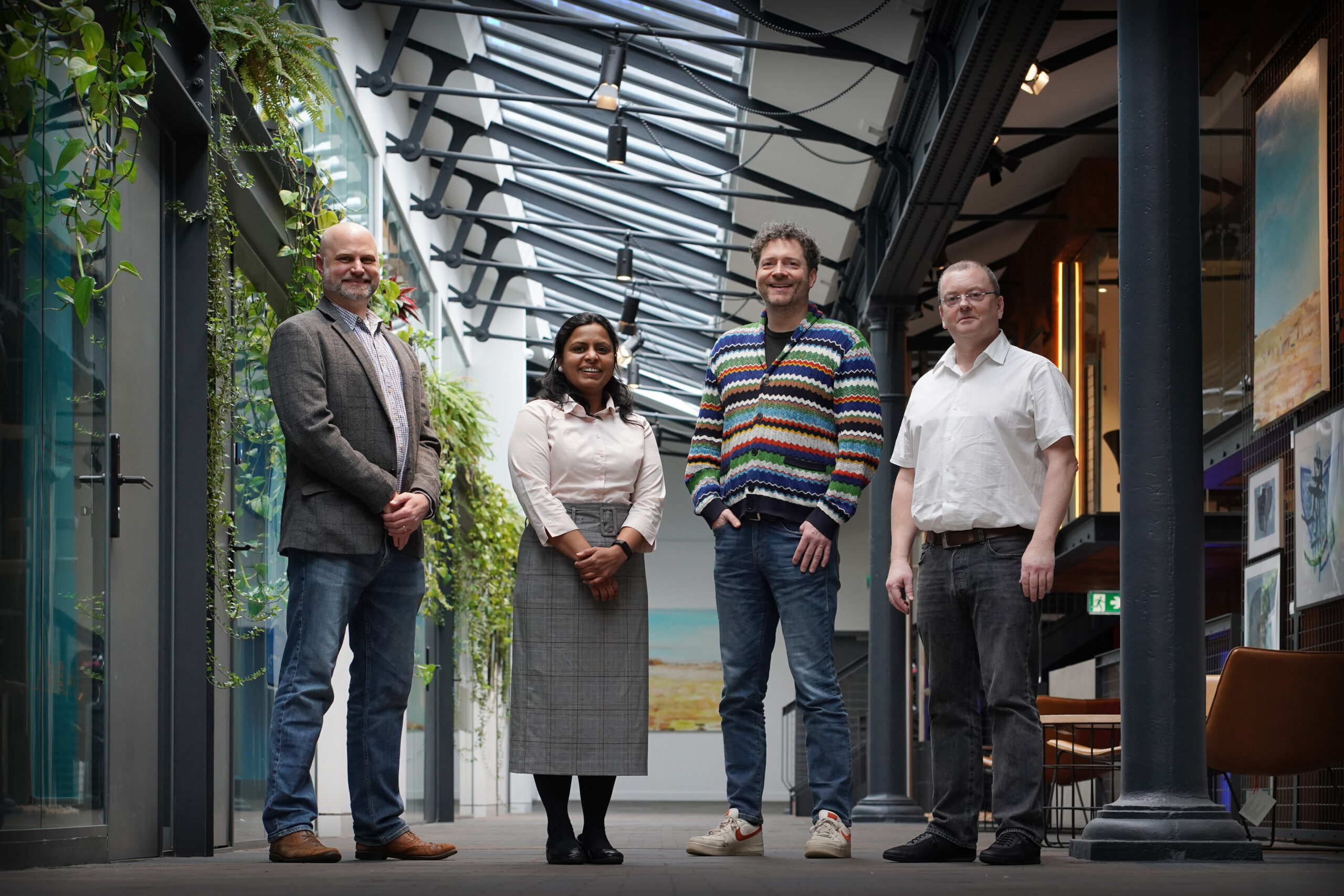Digital Xtra Fund invites applications for initiatives to drive digital skills for young people across Scotland
![]() Digital Xtra Fund has opened applications for its eighth cohort of tech initiatives since being launched in 2016. The charity supports extracurricular activities at the school stage which help drive digital skills. To date, the Fund has secured almost £1 million to deliver coding and tech clubs and initiatives nationwide.
Digital Xtra Fund has opened applications for its eighth cohort of tech initiatives since being launched in 2016. The charity supports extracurricular activities at the school stage which help drive digital skills. To date, the Fund has secured almost £1 million to deliver coding and tech clubs and initiatives nationwide.
Industry backers include Chroma Ventures, Baillie Gifford, J.P. Morgan, Cirrus Logic, Accenture, ScotlandIS, Skyscanner, and Incremental Group which was acquired by Telefonica Tech last year. The Scottish Government will once again match industry support in 2023/24.
Kraig Brown, Digital Xtra Fund’s Partnership and Development Manager said: “We have some amazing support from the corporate and public sectors, in particular the Scottish Government, who realise what a pressing issue this is for young people, employers, and the economy overall. Based on the success of previous grant awards, they have once again committed to working with us and our partners by match funding industry support for tech activities in 2023/24. With the ongoing cost of living crisis, there has never been a more crucial time to work together and this funding underlines this.”
 Digital Xtra Fund is currently in negotiations with several companies to increase the level of funding awarded before successful applications are finalised in May, but the economic downturn has put a strain on all charities. Kraig Brown added: “We are looking for more partners, primarily from the corporate sector, so we’d love to speak to as many people as we can in the coming months. The match funding from the Scottish Government means all support will make a big difference.”
Digital Xtra Fund is currently in negotiations with several companies to increase the level of funding awarded before successful applications are finalised in May, but the economic downturn has put a strain on all charities. Kraig Brown added: “We are looking for more partners, primarily from the corporate sector, so we’d love to speak to as many people as we can in the coming months. The match funding from the Scottish Government means all support will make a big difference.”
Rebecca Court, Incremental Group’s Head of Marketing and a former Digital Xtra Fund panellist, who help the Fund select which applications are successful, said: “Digital Xtra Fund undertakes such important work across Scotland. The team’s commitment to addressing the alarming digital skills gap while also focusing on increasing diversity and inclusivity in the tech sector, a sector that continues to be underrepresented by women, is key to everyone’s future success. It is vital the corporate sector and government recognise that when we support grassroots initiatives, especially for young people, it is win-win for communities, industry, and Scotland as a whole.”
Jamie Hepburn, Minister for Higher Education and Further Education, Youth Employment and Training, said: “Following last year’s investment from the Scottish Government, we will be continuing to support the Digital Xtra Fund with another £100,000 this year to enable young people to learn digital technology and coding skills through extracurricular activities. The work of Digital Xtra Fund and partners provides young people a path into exciting careers in tech and entrepreneurship, and we are delighted to be supporting the work of this organisation.”
 Digital Xtra Fund is supporting 35 initiatives during the current 2022/23 academic year covering 24 local authorities. These initiatives are on target to engage over 7,400 young people, of which approximately 50 per cent will be girls and young women.
Digital Xtra Fund is supporting 35 initiatives during the current 2022/23 academic year covering 24 local authorities. These initiatives are on target to engage over 7,400 young people, of which approximately 50 per cent will be girls and young women.
Kraig Brown continued: “Yes, our aim is to inspire young people to learn digital skills and yes, we hope they choose to pursue a career in tech, but that’s not the main reason we do this. We do this because we need to support young people and even more so when times get tough, particularly the most vulnerable or disadvantaged. While there are many ways to do this, Digital Xtra Fund believes providing essential skills for their future in safe and fun environments is key.”
Schools or organisations interested in applying to the Round VIII grant awards for activities delivered during the 2023/24 academic year can apply on Digital Xtra Fund’s website. Applications close on 06 April 2023. Additional support, including guidelines for applying, case studies, and links to upcoming webinars can also be found on the Fund’s website.



 Kraig Brown, Digital Xtra Fund’s Partnerships and Development Manager, said: “We’re extremely pleased to be able to support many more initiatives this year, as well as a wider range of activities. This year’s applications show a renewed appetite for digital skills initiatives after a challenging couple years. We know we need to positively engage more of Scotland’s young people with digital tech to help them reach their potential in the future economy and an increasingly digital world, and extracurricular activities are the perfect medium to do this.”
Kraig Brown, Digital Xtra Fund’s Partnerships and Development Manager, said: “We’re extremely pleased to be able to support many more initiatives this year, as well as a wider range of activities. This year’s applications show a renewed appetite for digital skills initiatives after a challenging couple years. We know we need to positively engage more of Scotland’s young people with digital tech to help them reach their potential in the future economy and an increasingly digital world, and extracurricular activities are the perfect medium to do this.” Sam Pattman, Philanthropy Manager, Baillie Gifford said: “Baillie Gifford is very pleased to continue its support of Digital Xtra Fund. Through our business, we know the importance of digital skills and ensuring young people are prepared for what’s ahead of them. Extracurricular activities can reach and engage a wider range of young people, as demonstrated by the variety of grant recipients this year. We have always been impressed by the charity’s ambition and its reach across Scotland, and look forward to hearing more from the supported initiatives as the year moves forward.”
Sam Pattman, Philanthropy Manager, Baillie Gifford said: “Baillie Gifford is very pleased to continue its support of Digital Xtra Fund. Through our business, we know the importance of digital skills and ensuring young people are prepared for what’s ahead of them. Extracurricular activities can reach and engage a wider range of young people, as demonstrated by the variety of grant recipients this year. We have always been impressed by the charity’s ambition and its reach across Scotland, and look forward to hearing more from the supported initiatives as the year moves forward.”
 Chris van der Kuyl, Principal, Chroma Ventures, said: “Our investment in human talent must begin at an early age through primary and secondary, en route to colleges, universities, or apprenticeships. Extracurricular activities like those funded by Digital Xtra Fund play such an important role for young people on that pathway, especially for those who may not have computing opportunities in the classroom.”
Chris van der Kuyl, Principal, Chroma Ventures, said: “Our investment in human talent must begin at an early age through primary and secondary, en route to colleges, universities, or apprenticeships. Extracurricular activities like those funded by Digital Xtra Fund play such an important role for young people on that pathway, especially for those who may not have computing opportunities in the classroom.” Kraig Brown, Digital Xtra Fund’s Partnership and Development Manager said: “We are very excited to be able to offer this
Kraig Brown, Digital Xtra Fund’s Partnership and Development Manager said: “We are very excited to be able to offer this 
 One example he gives occurred during a recent online session he attended at
One example he gives occurred during a recent online session he attended at  Scots entrepreneurs share Fund’s aim to inspire youngsters
Scots entrepreneurs share Fund’s aim to inspire youngsters

 Opportunities for all in the Heart of the community
Opportunities for all in the Heart of the community

 “
“





 If this approach is to succeed, he concedes, it will need support from the very top.
If this approach is to succeed, he concedes, it will need support from the very top.